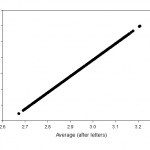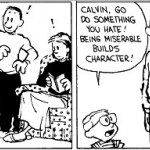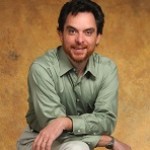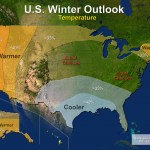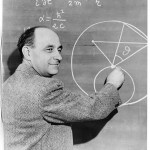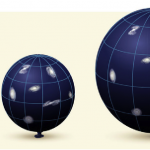Free Thought
I really appreciate how all my Internet friends have followed me from major career announcement to major career announcement over the last few years. From my job at Elsevier all the way to last year's temporary detour as Chief Advisor on Science Libraries for the Government of Canada! The last few years sure have been exciting but it's time for a new challenge.
And yes, I'm taking a leap back into the scholarly publishing world. This time I'm starting up my own open access scholarly publishing company to publish in all the STEMM fields with a special focus on computer science, which is, of…
My main line of research is in algebraic graph theory. In particular I am interested in the eigenvalue spectra of Laplacians on graphs. Those don't often get mentioned over at HuffPo, so I raised an eyebrow when I saw this:
A mathematician by the name of John Urschel recently published a complex paper in the Journal of Computational Mathematics entitled, “A Cascadic Multigrid Algorithm for Computing the Fielder Vector of Graph Laplacians.”
Mr. Urschel's paper is newsworthy because of this:
A mathematician publishing a math paper wouldn't normally be news, except that John Urschel the…
We'll be accepting applications for The Schrödinger Sessions workshop at JQI through tomorrow. We already have 80-plus applicants for fewer than 20 planned spots, including a couple of authors I really, really like and some folks who have won awards, etc., so we're going to have our work cut out for us picking the attendees...
We're also discussing the program for the workshop-- more details when we have something more final-- which has me thinking about good examples to use of storytelling involving quantum physics. I'd like to be able to give a few shout-outs to already-existing fiction…
Yesterday's quick rant had the slightly clickbait-y title "GPAs are Idiotic," because, well, I'm trying to get people to read the blog, y'know. It's a little hyperbolic, though, and wasn't founded in anything but a vague intuition that the crude digitization step involved in going from numerical course averages to letter grades then back to multi-digit GPA on a four-point scale is a silly addition to the grading process.
But, you know, that's not really scientific, and I have access to sophisticated computing technology, so we can simulate the problematic process, and see just how much…
One of the joys of the holidays and the University turning off the heating and locking us out, is that it provides time to catch up on things: papers, refereeing, recommendation letters, grading, syllabi, proposals, all the stuff one can rarely get to during actual working semester hours.
And, sometimes, there is time for real life: casual reading, family, catching up online...
One of the ye olde blog things I like to look over occasionally is Scott Aaronson's shtetl-optimized, for the latest on P!=NP news, or polemic on quantum computing.
This time, what caught my eye was his take on the…
“Where are you going now, my love?
Where will you be tomorrow?
Will you bring me happiness?
Will you bring me sorrow?” -Stephen Stills / Crosby, Stills & Nash
We've made it! It's the first Comments of the Week of the new year here at Starts With A Bang, and we're doing our best to start it off right, with some of the most interesting and compelling stories about life, the Universe and everything that there are. This past week has seen the following articles that you should catch up on if you missed anything:
Choosing your (professional) life (for Ask Ethan),
The simplest solution to…
Carlos Bueno's new book, Lauren Ipsum: A Story About Computer Science and Other Improbable Things, is another example of how to create a fun and informative books for kids that is both entertaining and engaging. While not without some faults, it does a great job of using character and story to convey serious ideas about computer science in an accessible way.
The premise of the story is that our plucky heroine, Lauren Ipsum, or Laurie, gets lost in the forest after an argument with her parents and somehow finds her way into the mysterious alternate reality Userland. In order to find her way…
I've been reading History of programming languages---II which is a book of a 1993 conference. There's lots of interesting stuff, if you like that kind of thing, but I'm particularly struck by the section on Ada. There's fun like the distinction between general-purpose and "embedded" computing, which is always somewhat hard to define:
In the early seventies these were generally called "weapons system computers." A short time later they were called "embedded systems," to convey the message that they also included functions such as control, communications, and intelligence as part of an overall…
The ‘Nifty Fifty (times 4)’, a program of Science Spark, presented by InfoComm International, are a group of 200 noted science and engineering professionals who will fan out across the Washington, D.C. area in the 2014-2015 school year to speak about their work and careers at various middle and high schools.
Meet Nifty Fifty Speaker Dr. Tim Chartier
As a mathematician and researcher par excellence specializing in numerical linear algebra, Tim Chartier, Associate Professor in the Department of Mathematics and Computer Science at Davidson College, is known for pushing the boundaries of…
The image below is a phylogram, illustrating the degree of variation in a sequence of mitochondrial DNA. The concept is fairly simple: if two DNA samples are from individuals that are evolutionarily distant from one another, they'll have accumulated more differences in their mitochondrial DNA, and will be drawn farther apart from one another. If the two individuals are closely related, their DNA will be more similar, and they'll be drawn closer together. That's the key thing you need to know to understand what's going on.
There are other, more complicated analyses going on in the figure, too…
Over at Backreaction, Bee has a nice piece on our current age of virality. Toward the end, she discusses some of the ways this applies to science, specifically a quote from this Nature article about collaborative efforts to measure "big G", and a story about a Chinese initiative to encourage collaboration. She writes of the latter, "Essentially, it seems, they’re giving out salary increases for scientists to think the same as their colleagues."
And I agree that this can be a problem-- there's a famous paper I can never find looking at the evolution of the accepted value of some physical…
The National Oceanic and Atmospheric Administration (NOAA) has released its official prediction of what this winter is going to be like.
And yes, it is in ALL CAPS!!! I've pasted it below, but first a summary of the relevant points.
According to NOAA
El Nino
There will be a weak El Nino, late Autumn or Winter.
Or, there could be a moderate EL Nino.
Or, there could just be this thing that might someday be an El Nino but doesn't quite do that for an indefinate period of time.
November, December, January Temps
Warmer along the West and Northwest, all the Northern State and New England, and the…
This is one scary book. Never mind The Exorcist or Guillermo del Toro and Chuck Hogan's The Strain trilogy, this is the real thing. And that's because unlike those authors' fevered dreams of gods and devils and vampires and plagues, the nightmare that all of our governments are spying on is really real.
And we can thank Edward Snowden for uncovering and releasing information about the extent of the spying and Glenn Greenwald (and others) for spreading the word far and wide.
Glenn Greenwald's book No Place to Hide: Edward Snowden, the NSA, and the U.S. Surveillance State is the story of…
The second day of the "Quantum Boot Camp" was much lighter on talks. The only speaker was Ray Laflamme from the Institute for Quantum Computing in Waterloo, who gave a nice introduction to quantum technologies. While he did spend a bit of time at the start going through Shor's algorithm for factoring numbers (following up a discussion from Wednesday), he mostly focused on ways to use quantum physics to improve sensors of technological interest.
So, for example, he talked about how efforts to develop techniques for error-correcting codes in liquid state NMR quantum computing led to the…
Since this part of the trip is actually work-like, I might as well dust off the blog and post some actual physics content. Not coincidentally, this also provides a way to put off fretting about my talk tomorrow...
I'm at the Nordita Workshop for Science Writers on quantum theory, which a couple of the attending writers have referred to online as boot camp, though in an affectionate way. The idea is to provide a short crash course on cool quantum physics, so as to give writers a bit more background in subjects they might need to cover.
The first talk was from Rainer Kaltenbaek (whose name I…
In which Rhett and I talk about awful academic computing systems, Worldcon, our Wikipedia pages, and AAPT meeting envy.
Some links:
-- Rhett's Wikipedia entry
-- My Wikipedia entry
-- The 2014 AAPT Summer Meeting
-- LonCon 3, this year's Worldcon
-- My puzzling Worldcon schedule
We have some ideas for what to do next time, when our little hangout is old enough to drink, but you need to watch all the way to the end to hear those.
Given the recent Feynman explosion (timeline of events), some people may be casting about looking for an alternative source of colorful-character anecdotes in physics. Fortunately, the search doesn't need to go all that far-- if you flip back a couple of pages in the imaginary alphabetical listing of physicists, you'll find a guy who fits the bill very well: Enrico Fermi.
Fermi's contributions to physics are arguably as significant as Feynman's. He was the first to work out the statistical mechanics of particles obeying the Pauli exclusion principle, now called "fermions" in his honor (Paul…
A couple of years ago, the Templeton Foundation funded the New Frontiers program to pose "Big Questions" in some areas of science.
This is a slow liveblog - part II will be tomorrow with more cosmology and life in the universe
Seed funding was provided to 20 investigators and small groups to start exploratory research, and, now, it is time to say what they found.
This follows up from the New Frontiers kick-off conference back in 2012.
The New Frontiers conference to report the hint of the beginning of the draft of the answers is under way... most of the investigators and about half of the…
"All one can really leave one's children is what's inside their heads. Education, in other words, and not earthly possessions, is the ultimate legacy, the only thing that cannot be taken away." -Wernher von Braun
After another outstanding week here at Starts With A Bang, it's time to take a detailed look at what you've had to say about everything we've talked about. From the expanding Universe to galaxies near and far, to the future of NASA and more, here's the weekly recap, just in case you missed anything (or want a second look):
Why does light stretch as the Universe expands? (for Ask…
There's another comment by Andy Lacis at Climate Etc., and just like the original its deeply under-appreciated by the residents. Indeed it would have been unappreciated by me because I don't read her posts much less wade into the comments unless someone draws my attention.
Before we go onto AL's wise words, lets read some very silly ones: Climate and weather model share the same underlying mathematical dynamic. So models are undoubtedly chaotic - this is the kind of stuff that JC chooses to highlight at the top of her posts. You'd be better off with my Oh dear, oh dear, oh dear: chaos,…
